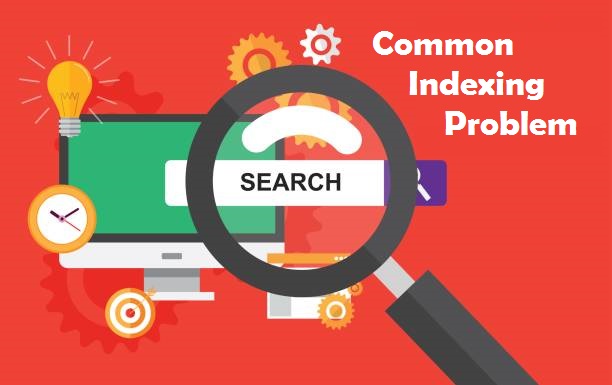Indexing problems in Google are common indexing issues that website owners and webmasters encounter. At the point when Google files a site, it basically slithers and dissects the substance to remember it for its indexed lists. However, sometimes websites face difficulties with indexing, which can result in their pages not appearing in search results or not being ranked properly. In this article we are explaining some common indexing problem and their solutions:
What is Indexing?
Indexing organizes the data according to a particular plan or structure. Data indexing can have many applications in finance and economics and usually involves the use of a common reference point or benchmark for comparison purposes.
Why Indexing is important for a website?
Without indexing google can not crawl your page or site and if it is not done then your site and the page will not be shown in the search engine and the visibility of the site has down.
What are common Indexing problems?
- A problem with Crawling
- Problems in Rendering
- Finding Low-Quality Content
If Google found any kind of issue they will refuse to index your page as well your site too.
How do I fix the Indexing problems?
Fixing the indexing problem is pivotal to guarantee that your site’s pages are appropriately slithered and remembered for web crawler results. The following are a couple of stages you can take to address requesting issues:
Robots.txt file: A misconfigured robots.txt file can prevent Google’s bots from crawling and indexing specific pages or the entire website. Ensure that the robots.txt file allows access to the relevant pages by checking its content and updating it if necessary.
Solution: – Edit your robot.txt file removes from disallows and allow.
Meta tags: Incorrect usage or implementation of meta tags, such as “no index” or “nofollow,” can prevent Google from indexing specific pages. Review the meta tags on your web pages and make sure they are correctly set to allow indexing.
Solution: If you are new and struggle to generate the right title tag for your content then use a SEO plugin like Yoast.
XML sitemap: A missing or improperly formatted XML sitemap can hinder Google’s ability to discover and index pages on your website. Create an XML sitemap that includes all relevant pages and submit it to Google Search Console for better indexing.
Solution: – Connect your page with the site map.
Server issues: If your website experiences frequent server errors or downtime, Google’s bots may struggle to access and index your pages. Monitor your server’s performance and promptly address any issues that may hinder accessibility.
Solution: – Talk to your hosting provider and asks him if you already make the payment and why the website speed is slow in another case your website designer did this.
Notes: Tips you can follow to avoid indexing issues
Make sure there are no crawling issues.
Make sure there is no rendering issue.
Keep your content unique, high-quality, and related to user queries.
Keep your pages well-linked internally.
Set your canonicals right.
Page load speed: Slow-loading pages can impact Google’s crawl efficiency, leading to incomplete indexing. Optimize your website’s performance by reducing page load times through techniques like image compression, browser caching, and code optimization.
Solution: – Talk to your website developer.
Duplicate content: Google aims to provide unique and valuable content to its users, so duplicate content may not be indexed or rank well. Review your website for duplicate or thin content, and make necessary improvements to ensure each page offers unique value.
Solution: –
- Check if all pages have the same canonical
- Check if the canonical page has been canonicalized to itself.
- Make sure internet links point to the canonical page, not to duplicate pages.
- Make sure all duplicate pages have canonical tags.
Manual actions: In some cases, Google may issue manual penalties for violations of its webmaster guidelines. Review Google Search Console for any manual actions and follow the provided instructions to resolve the issues and regain indexing.
Mobile compatibility: With the mobile-first indexing approach, websites that are not mobile-friendly may face indexing difficulties. Ensure your website is responsive and optimized for mobile devices to improve indexing and visibility.
Solution: Open your device’s Settings app and go to System > Advanced > Developer options > Change app compatibility. Select a program from the list. In the list of changes, find the change you want to enable or disable and tap the switch.
Crawl budget: Google assigns a crawl budget to each website, which determines how many pages it crawls during each visit. If your website has a large number of low-quality or irrelevant pages, it may consume the crawl budget without indexing important pages. Remove or improve low-value pages to maximize the crawl budget for essential content.
Solution: – Show the importance of your page
- Internal link: – means which pages are already indexed of your site’s link on those pages with this page content. Then Google thinks that this page also has a useful full message for readers and then they will index your page.
- External link: – Get or earn the external link from the existing websites that are already indexed.
Backlink issues: Poor-quality or spammy backlinks pointing to your website can affect its credibility and indexability. Regularly monitor your backlink profile, disavow toxic links, and focus on building high-quality, relevant backlinks.
Conclusion
Remember to monitor your website’s performance in Google Search Console and regularly check for indexing issues or errors. Additionally, staying updated with Google’s guidelines and best practices will help you proactively address indexing problems and maintain a well-indexed website.

